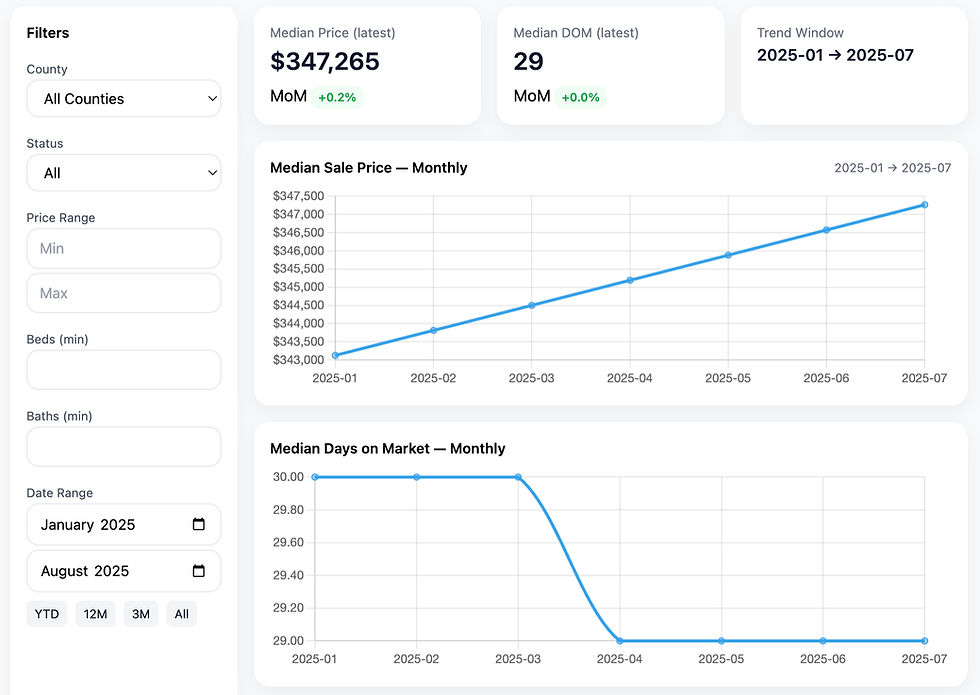The Human Side of Automation: How Employers Can Support Employees Whose Jobs are Automated
- Riley Phillips

- Oct 11, 2024
- 3 min read

Automation has been a constant in human history. Whether it was machines in the industrial revolution, the rise of computers in the late 20th-century, and now, a new front, robots and artificial intelligence.
Although robots and cobots have been working alongside workers in assembly lines for years, it feels like we’re entering a new phase.
The recent Port Strike on October 1st, 2024, marked a significant moment in the ongoing tension between employers who want to automate and employees who want to protect their jobs. While a short-term agreement was reached, it’s hard to imagine a world where the port workers successfully prevent the automation of their jobs. This strike was likely a preview of what’s to come. Companies are going to automate, and that automation means people will lose their jobs.
So what happens to those employees?
The Skills Gap
McKinsey estimates that by 2030 up to 30% of current hours worked in the United States could be automated rising to 48% in 2035. Accelerated, in part by generative AI. The most frequently proposed solution to job automation has historically been retraining. In previous eras, such as the Industrial Revolution, farmers whose jobs were replaced by automation could transition to roles in factories where labor was in demand with minimal training required.
However, the AI Revolution makes retraining much more difficult, if not, unfortunately, impossible for some.
Another McKinsey report gets more into the types of jobs that will be replaced and the types, and amounts, of jobs that will be created. workers in food services, customer service and sales, office support, and production work could account for 10 million of the 12 million expected jobs to be automated. Jobs in business and legal professions, management, healthcare, transportation, and STEM are expected to grow.
The problem that starts to emerge is that unlike the transition from farmer to factory worker, the skills needed to move from a job that’s likely to be automated to a new job that emerges are vastly different, more difficult, and take time.
Take an Amazon warehouse worker, for example. Their job may involve tasks like sorting, packing, and managing inventory. These tasks require physical stamina, attention to detail, and familiarity with warehouse technology like handheld scanners. However, these skills are not directly transferable to many of the roles emerging from automation. If that Amazon worker’s job gets automated, the jobs that are available to them likely involve coding, data analysis, or highly-technical skills.
Learning those types of skills can’t be done overnight. While bootcamps are emerging that help people learn to code fairly quickly, we’re still talking weeks to months for them to be completed.
Easing the Transition
Most workers facing automation cannot afford to take months or even years off to learn the skills necessary for this new job landscape. So what can be done to make sure that we don’t face mass unemployment with no opportunity to transition?
One option is for companies to start internally providing the education needed to employees now. These companies know exactly what and when jobs will be automated, so they could prepare their employees to transition into new roles before their current job is automated.
But one of the main reasons behind automation is efficiency. People are the most expensive cost a business has and a robot that can do the work of 4 employees doesn’t take breaks, need health insurance, or even for lights to be on in the building, so while some companies may have enough new positions open up to transition employees who have been automated to, that’s likely not the case for most.
Automation Packages
The solution I propose to this problem is automation packages. An automation package would be a form of severance provided to an employee whose job gets automated.
This could be a robust package that includes tenure-based severance pay, continued health insurance coverage, a retraining stipend, guaranteed admission to an education program, and career coaching. Companies could partner with universities and other education programs to provide the education and do the same with career coaching.
Is it likely that major corporations will implement these probably very expensive packages without a major change to employment law? Probably not, but in a world that is very quickly becoming more and more automated, there need to be plans in place. 30% of work being replaced over the next 6 years isn’t good for anybody in the economy, including corporations, and in a world where government moves slow and your average congressman couldn’t tell you what generative AI is, it’s going to have to be on the Google’s, Amazon’s, and Apple’s of the world to take initiative and drive meaningful change.





Comments